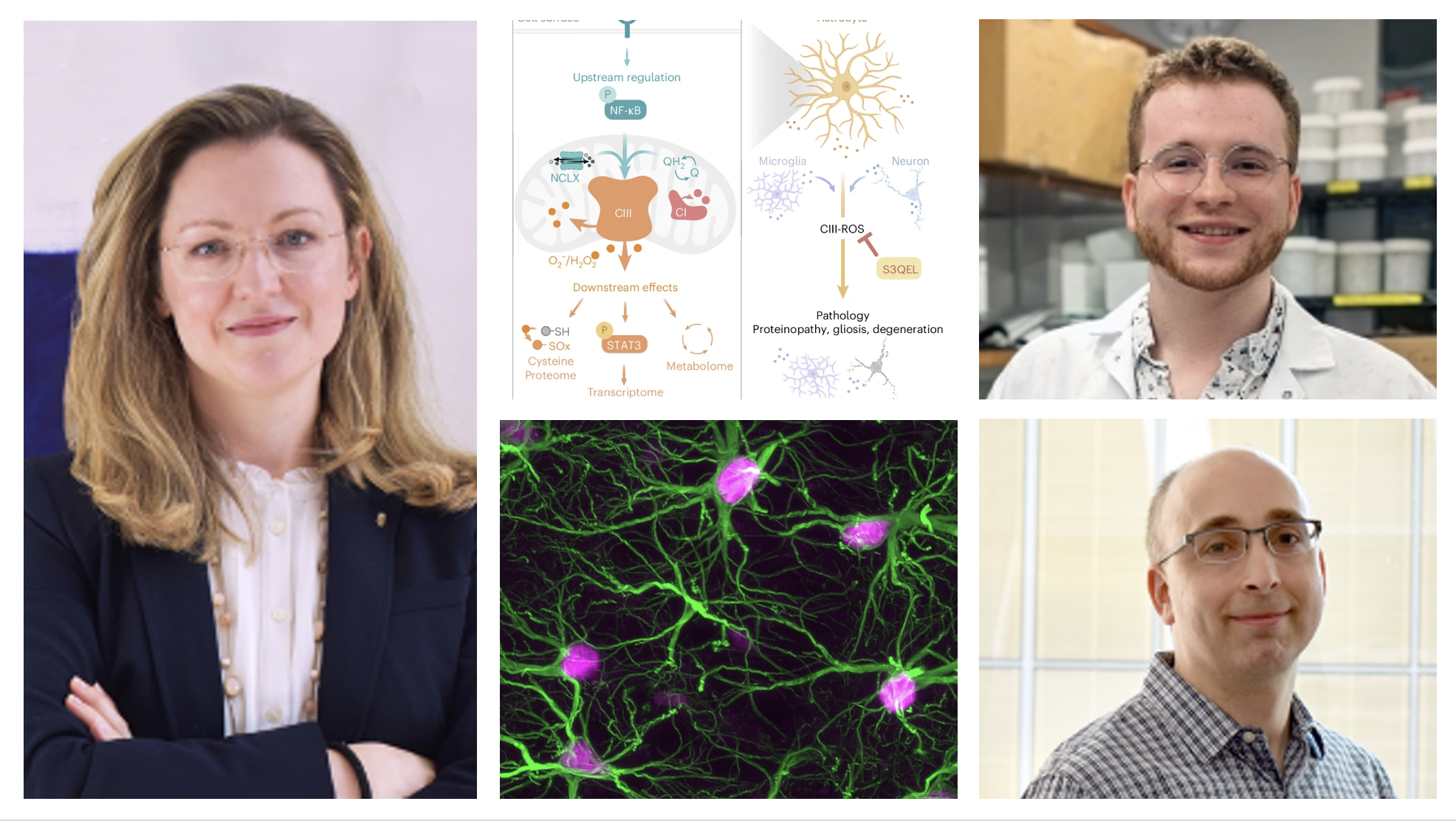
We’re pleased to congratulate the Orr Lab in collaboration with the Gan Lab for their exciting new study, led by first author Daniel Barnett, on the underlying sources of brain free radicals and their potential role in driving dementia.
Published in Nature Metabolism, their findings reveal that non-neuronal brain cells called astrocytes — rather than neurons themselves — generate reactive oxygen species (ROS) at a distinct mitochondrial site (Complex III). WCM Newsroom These free radicals then trigger neuroinflammatory changes and neuronal damage. WCM Newsroom
Importantly, the team showed that selective inhibition of this ROS generation decreased astrocyte activation, reduced expression of neuroinflammatory genes, lowered tau modifications seen in dementia models, and improved lifespan in a mouse model of frontotemporal dementia. WCM Newsroom
This work opens up a promising new therapeutic avenue — by targeting the precise site where ROS originate, rather than trying to mop them up broadly. Congratulations to the Orr Lab, and especially Daniel for this milestone achievement!

